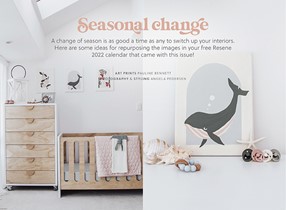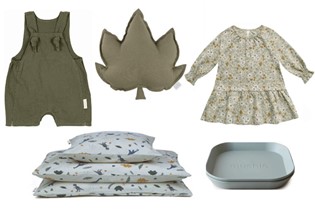An open letter to all mamas

Dear Mamas,
I’m writing this letter today in celebration of you, on any old typical day. Now is not the moment to notice you at your most prolific, perfect, or productive. Nope. Acknowledgment of awesomeness is easy. Anyone can give accolades for accomplishment. Our task today is more noble: this correspondence is intended to uphold the ordinary, to relish the routine, to bedazzle the boring.

Full disclosure, friends: this open love letter to the mundanities of motherhood came about after I’d been at a funeral. It really got me thinking – birth, death, the cycle of life. All that.
The deceased had been a leader in their professional field, and much adoration was heaped upon them via eulogies, speeches, even newspaper coverage. And rightfully so.
However, I knew this person to also be a frequently inconsistent, unavailable parent. Loved their kids, but perhaps didn’t know how to show up for them day in, day out. Maybe didn’t realise that setting limits can be a great thing for a child. That predictability can be important, or that taking the time to teach kids the skills to look after themselves is time well spent.
The children left behind by the deceased are fully adult at this point – but they are not exactly thriving. Substance abuse? Check. Limited career prospects? Check. Relationship troubles? Check. Mental health issues? Check. Squalid housing? Check.
This ‘failure to thrive’ seen in these adult children is heartbreaking, almost as heartbreaking as living in a world that turns a blind eye to the value of turning up for each other in unglamourous and inconvenient ways, but shines a big spotlight on the flashy or commercial.
Being at that funeral was like watching people feasting on fruit that was shiny on the outside but full of worms. They’re all raving about the professional roles fulfilled by this person, metaphorical fruit juice dripping from their chins. I kept waiting for someone to say “Isn’t it a shame about the worms?” (As in: “Crikey, those grown children aren’t exactly equipped to live in the world, are they?”) But nobody did. To be fair, that’s not the done thing at a funeral.
But it got me thinking, and imagining a world where we publicly acknowledge the bits about one another that are brushed aside as unimportant. “Let’s raise a toast to this person, who read Hairy Maclary every single time they were asked to,” or “I ask you to please be upstanding as we honour this mother, who could carry a capsule seat and a bag of groceries whilst simultaneously singing lullabies and unlocking the front door.”

Dear mamas, may I use this love letter to you here today to openly remind you how wonderful you are. And let’s play some more with that idea; that we could hope to be remembered for seemingly small and allegedly unimportant acts of parenthood.
Imagine a world where postage stamps and statues aren’t just made to honour monarchs and explorers, but they also celebrate 'Those who consistently prepare nutritious snacks'.
Gather ‘round, this symphony has not been composed for a war hero, this is for consistent care. This gorgeous symphony has been composed to honour the tired cuddlers, the back rubbers, and the 'show-uppers'.
This celebration of the daily and the ordinary could be seen as a wise practise, in terms of what research tells us of children's real needs. You might have heard that children do not need a ‘perfect’ mother – what they need is (in the words of celebrated British pediatrician, D. W. Winnicott) an “ordinary, good enough mother”.
Striving for perfection is a fool’s errand, my darlings. It distracts us from responding to our children in the here and now. In this way, we could argue that trying to be a ‘perfect’ mother actually makes us a worse parent.
This idea of a perfect mother – someone who prepares all organic food strictly from scratch, sprinkles all interactions with tinkling laughter, demonstrates limitless patience, and is wrinkle-free in both clothing and forehead – is a notion that inevitably leaves us doomed for failure!
No, in the spirit of our love letter, we must recognise that what children really need is much simpler. Drop the stories you might be telling yourself about what motherhood and family life 'should' look like. Because it’s different day by day, just like it should be.
I enjoy revisiting the work of legendary psychologist, Urie Bronfenbrenner, who summarised his decades-long study into child development in one beautiful sentence. He said, for a child to thrive “someone’s got to be crazy about that kid”.
That’s it. Being crazy about our kids. Dear mamas, I’m thinking that is your truth.
Beyond that, can you recognise that you are wonderful for simply making time? For doing all the apparently boring, sort of invisible, daily stuff? You’re magnificent. And for eventually teaching children how to do it too – we need prizes and certificates for that.
Sometimes I look around groups of children – like a mat time at kindergarten, a swimming lesson, or a school assembly – and I am awed by the invisible hours that sit behind and underneath each of those children. Someone did that laundry – heck, before that … someone bought that school uniform. Someone organized that swimming bag, packed that lunchbox, did those plaits.
In a great many cases, it was mums. I’m telling you, dear reader, you are so worthy of value. Societies should thank mothers as they pass them in the street. In the way people say “Thank you for your service” to veterans? They oughta say it to mothers, too. Thank you for your service.
The time we spend – hour upon countless hour – raising our children to become good and decent people is likely to be both our responsibility and our joy. It is also a volunteer position designed to make society better. When we take the time to teach our children to be kind and skilled, we know that they will be an asset to the community. They’re going to pull their weight.
This means that gradually, over time, they will be the ones doing the laundry, packing the lunchbox, sorting their own swimming bags. Bit by bit we trust our children to take more on, to participate in the give and take of family life. But, oh! Even within that equation – knowing how and when to increase that 'bit by bit' involves trusting your parental voice, and it can be hard to hear that internal voice over the sound of the chatty kids and the relentless to-do list.
Dear mamas, you’re amazing. So many of us holding so much together, thinking three steps ahead – making sure the karate uniform is clean for Tuesday, defrosting something for Wednesday, getting a gift for the party on Saturday. It can be exhausting, can’t it? May I offer this reminder: you don’t have to do it all yourself.
Mamas – could you let anything go? Can you give yourself a breath? What could you encourage your children (and partner, if there’s one) to do for themselves? What could you encourage them to do for YOU?
This is just another of those invisible and undiscussed motherhood moments – let’s shine a light on it. Gentle readers, let’s elevate the relevance of relentless parenting decision making. There are so many moving parts in family life, even something as simple as how to run the morning routine can feel fraught. (“I know Sam is capable of making his own toast. He’s six now and he loves to do it. It's just that he makes such a mess, and we are always in a rush…” or “My husband is fully capable of driving the kids to school at least a couple of days a week, we are just all so used to doing it this way and I can’t bear the grizzling if we change”.) It’s part of the family equation that we all must do!
Whether thinking things through or reacting to them, whether stuck in your head or light on your toes … your domestic life is likely to be packed with micro decisions, competing demands, and imagined outcomes. Is it any wonder that deciding what to have for dinner can push a gal over the edge?
Ah, yes. Let’s charge our glasses to those exceptional people who prepare dinners full of love and nutrition night after night. Raise your glasses to those same beloved folk who make that mealtime decision hundreds of times every single year of their parenting lives. Pop the cork, let’s celebrate the relentless family dinners.
Many of these examples of important and invisible work align with what is sometimes called 'emotional labour'. Although the person who first coined that phrase, sociologist and author, Arlie Hochschild, uses it to describe the emotional work required to function in the workplace. You know, things like wait staff who smile broadly, even if they’re sad that day.
However, in more recent years, emotional labour is more likely to be referring to the invisible heavy lifting we’ve been talking about here. These days emotional labour is just as likely to be talking about housework and 'life admin'.
Mary Portas is a retail expert and broadcaster who wrote Work Like a Woman: A manifesto For Change – to improve the UK's work-life balance. She said, in an interview for the BBC, that there’s no difference between mental load and emotional labour, as both refer to “how much [women] pick up that we don’t realise”. She went on to say, “Girls in their twenties instinctively and mindlessly – not mindfully – pick this stuff up”. “It’s exhausting and, as you get older, it goes to caring for children, parents, it takes up a huge part of life.”
This is a cautionary end to our funereal love letter, mamas. This is the bit where we both acknowledge our awesomeness, while at the same time ask if there’s anything we can put down, share, or let go. Have we picked up our workload mindfully? Or is there a mindless aspect to all we are doing?
It seems important to me that we pay attention to ourselves, and also to our peers. We can (and should!) bear witness to the otherwise invisible work that one another are doing. We can notice the late-night feeders, the fundraisers, and the bed makers. Offer a heartfelt “Good on you!”.
Equally, we can pay attention to our own relationship with those invisible tasks. What bits of joy can we find in the mundane? Can we use the predictable rhythms of family life as a gentle backdrop, providing freedom to explore the deep love that flows between people? Are these routines still serving the modern version of everyone? With kids growing and changing so fast, check in now and then: how many are really, truly necessary?
We can, and must, honour one another. Let competitive mothering be a thing of the past, may all negative self-talk drain down the plughole. Repeat after me: "I am doing a fine job, and so are the women around me. We are all doing the best we can".
As I sign off from this love letter, darling ones, I hope you can recognise how vital your mahi is. To your family, sure, but also to the wider community. I’ll see you all at the unveiling of our statue – the bronze cast 'Ordinary, Good Enough Mother'.
Till then, I send my love.
Miriam xxx
P.S. MUMS RULE!
Every day of motherhood is simultaneously predictable and utterly unpredictable, at least that's what Miriam McCaleb thinks. She's a writer, researcher, teacher and mum of two great girls in rural North Canterbury. Sometimes she blogs at baby.geek.nz and every single day she counts her many blessings; only occasionally through gritted teeth.

AS FEATURED IN ISSUE 56 OF OHbaby! MAGAZINE. CHECK OUT OTHER ARTICLES IN THIS ISSUE BELOW

















